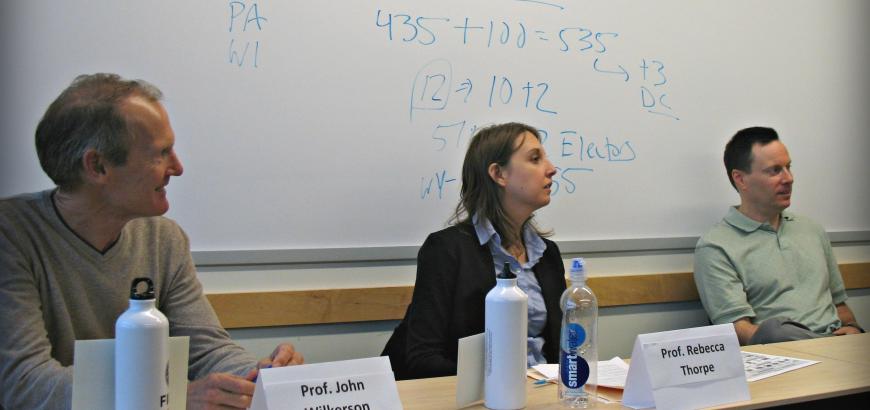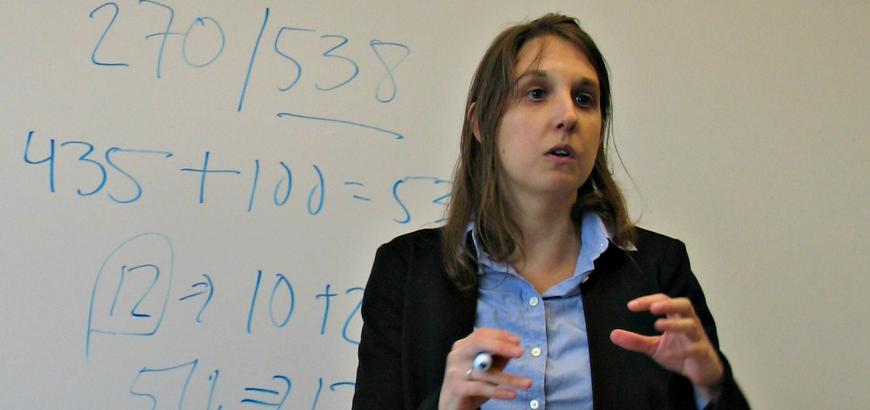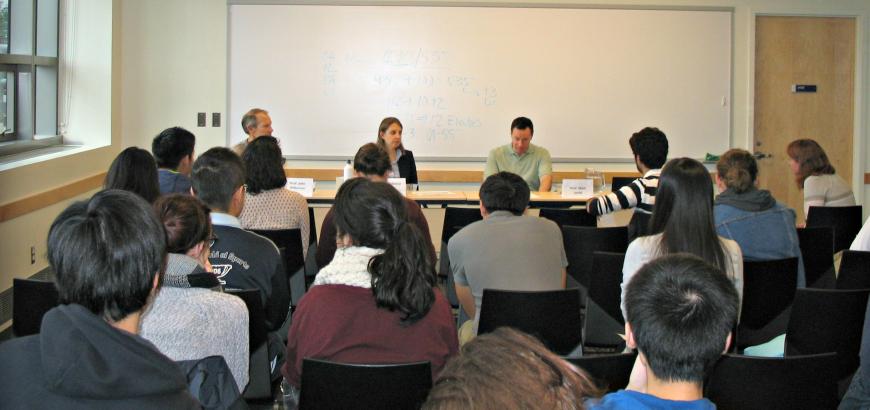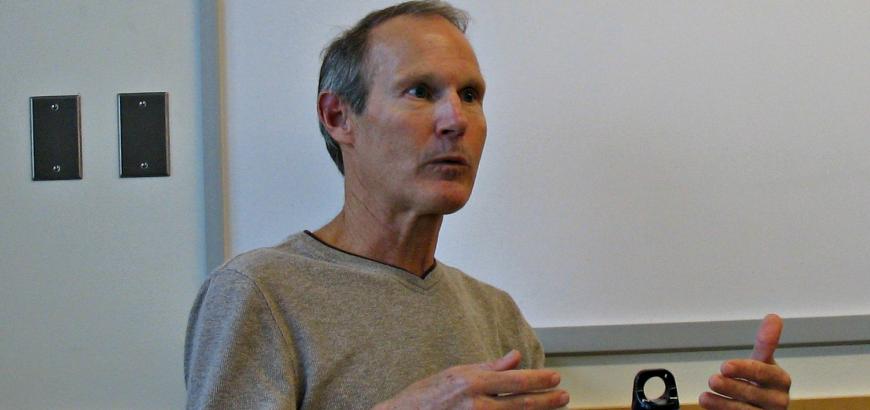Making Sense of the US Election: A Panel Discussion
FIUTS Lecture on November 2, 2016
Professors Mark Smith, Rebecca Thorpe, and John Wilkerson
FIUTS (The Foundation for International Understanding Through Students), a nonprofit organization affiliated with the University of Washington, sponsored a faculty panel on November 2nd to explain some of the big issues surrounding the election. FIUTS produces “ongoing events and activities throughout the quarter that give students opportunities to get to know others from around the world,” explained Ellen Frierson, the Manager of Education Programs at FIUTS. Over the past year the election has become a topic of discussion among FIUTS students and many have expressed interest in knowing more about the United States political process. Therefore, FIUTS coordinated a faculty panel and invited Political Science Professors Mark Smith, Rebecca Thorpe, and John Wilkerson to participate and to provide their insights on the election.
After giving a quick overview of the three branches of government, their importance in relation to the election cycle, and the presidential electoral system to the audience of mostly international students, the panelists went on to answer questions about the divisiveness and negativity of this election. Professor Thorpe stated that negativity during a campaign is not a new thing, however it is unique in the sense that “the political parties are more polarized than they have been at any time since right before the Civil War.” She also said that anti-political politicians, such as the Tea Party, have contributed in part to what is now a more divisive climate.
Media has also played a role in the negativity and polarization of this election. Although it may not have caused it directly, it at least exacerbates these political divisions. All three panelists commented that voters tend to self-select their media outlets. Strong Republicans may choose to receive their news from more conservative news sources just as strong Democrats or progressives may seek to get their news from more liberal news sources. Therefore, they are receiving information that is very one-sided and may demonize the other side. Professor Wilkerson added that the media understands that people love controversy. Consequently, they tend to focus on the controversial things the candidates have said and done because those stories will receive more hits than news reports on policy differences between candidates.
Identity politics have taken a more prominent role in our national dialogue since Barack Obama became president, and political parties are more defined and divided by these issues. Professor Smith pointed out that Donald Trump’s “white, nationalist” rhetoric has “really elevated these identity questions and brought them to the surface.” Professor Wilkerson added, “Donald Trump came in and validated the viewpoints of a lot of people who felt like it wasn’t ok to express their political views…So it’s not like he has caused this, rather what he’s done is he has legitimated and made it ok to be vocal about those positions.”
Following the discussion, Professors Smith, Thorpe, and Wilkerson took questions from the audience. They will continue discussing this topic on November 16th, at the Department of Political Science’s quarterly faculty panel. Joined by Professor Sophia Wallace, they will analyze election results and where we will go from here. For more information about the event, please visit our events page.



